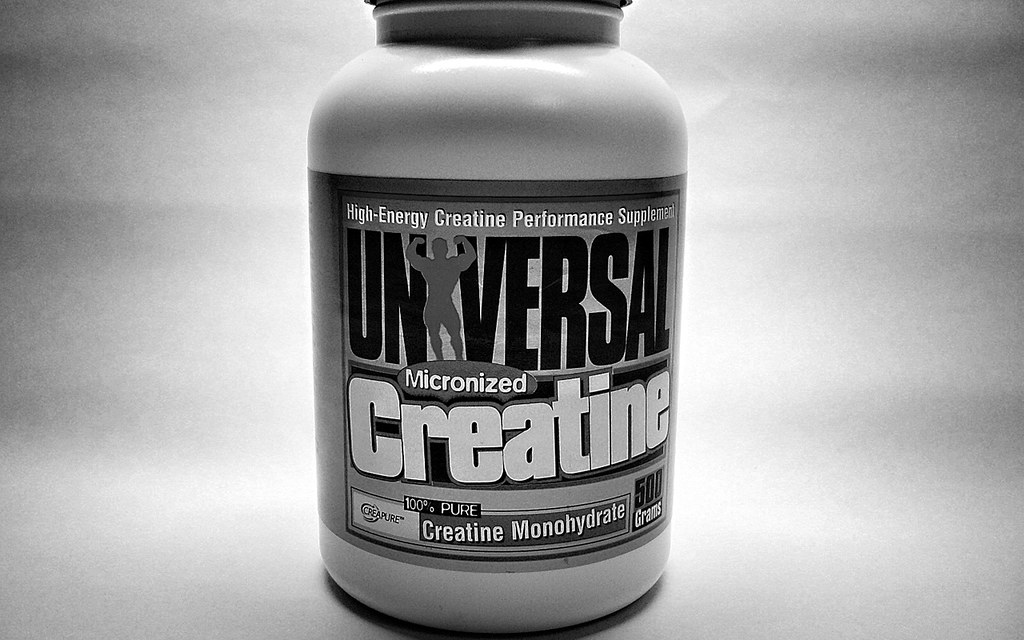Creatine is a great supplement ingredient, but it comes in many forms. Which one is right for you? Let’s compare two of the most popular choices.
The Two Combatants: Creatine Monohydrate and Creatine HCL
Let’s get ready to rumble. It’s time for another gym showdown. In one corner there is creatine monohydrate. It’s the most popular form of creatine in the supplement market. In the other corner, we have creatine HCL.
Creatine is a powerful option…but which form is right for you?
Some think it’s the best creatine on the market while others think it’s rubbish. Let’s look at the facts about these two dietary supplements and decide who wins.
What is Creatine?
Creatine is a substance that’s naturally produced by the body. As with many of the processes that occur in the body, creatine monohydrate has to undergo a transformation before the body can use this substance.
Creatine is turned into creatine phosphate, which is then used to help make ATP within the body. ATP (adenosine triphosphate) is what helps produce the energy needed in order for your muscle to be able to contract. By supplementing your diet with creatine monohydrate, you will experience increases in strength, lean mass, and athletic performance.
See Best-Selling Creatine Products on Amazon
Increase Your Strength with Creatine
One of the greatest benefits of supplementing with creatine is that it helps increase your strength faster. Numerous studies have shown that creatine supplementation results in faster increases in strength than training alone.
When participants who supplemented their diet with creatine were compared with those taking a placebo, those taking the creatine experienced a 24% increase in strength while those taking the placebo increased their strength by only 18%.
Increase Lean Mass
In addition to strength increases, creatine supplementation will help you put on more muscle. A study performed on powerlifters revealed that creatine supplementation significantly increased lean mass.
Two groups of men were studied. One group took creatine and experienced increases in lean mass from 6 pounds to 11 pounds. The other group took a placebo and experienced no increase in lean mass.
Another study aimed at men and women over the age of 65 revealed similar results. These participants engaged in resistance training two days a week for six months and supplemented their diet with either creatine or were given a placebo.
Among those taking the creatine a 4.6 increase in lean mass was experienced compared to two pounds in the placebo group. In addition, when comparing body fat between the creatine and the placebo group, there was a loss of 4.2 pounds and 0.9 pounds, respectively.
Get 10% off your purchase at LifeFitness.com!Click here to claim your discount now.
Creatine to Increase Athletic Performance
With increases in strength and lean mass, comes an increase in athletic performance. Athletes who engaged in various types of sports including swimming, rowing, cycling, and bodybuilding were tested on their performance levels.
Those who supplemented with creatine experienced performance increases ranging from 5% to 20%. Although all athletes were able to perform better with creatine supplementation, those engaging in sports that required shorter work periods experienced the greatest increases.
NUTRISYSTEMBuy One Month Get One Free!
What’s the Difference?
Creatine HCL (hydrochloride) does everything that creatine monohydrate does, but it reduces or eliminates some of the possible side effects associated with taking creatine monohydrate. Creatine HCL is touted as being more easily absorbed, producing fewer side effects and not requiring a loading phase.
See Best-Selling Creatine Products on Amazon
Creatine Benefits
Creatine HCL is purported to be a more concentrated version of creatine monohydrate and for that reason, it’s absorbed 60% more easily by the body.
Its high level of concentration also provides another advantage over creatine monohydrate. As opposed to creatine monohydrate, you need less creatine HCL to get the same results.
Some people who take creatine monohydrate experience stomach problems. Although the percentage of people who report stomach discomfort is low, it exists. There are no reports of stomach discomfort among those who take creatine HCL.
Lastly, lots of proponents of creatine HCL report that there is no need for a loading phase. However, the truth of the matter is, there is no need for a loading phase with any type of creatine. So, although you might hear the manufacturer boast about this feature, it’s just not necessary when taking creatine.
Get Fit at Home with the Best Selling Home Gym Equipment on Amazon!
So Which is The Winner?
In this showdown, the combatants are fairly evenly matched. Both creatine monohydrate and creatine HCL will help you get stronger, and leaner and improve your athletic performance.
The only difference is that creatine HCL is said to have a higher absorption rate with none of the side effects.
See Best-Selling Creatine Products on Amazon
CLICK HERE TO TRY BLACKWOLF PRE-WORKOUT!



